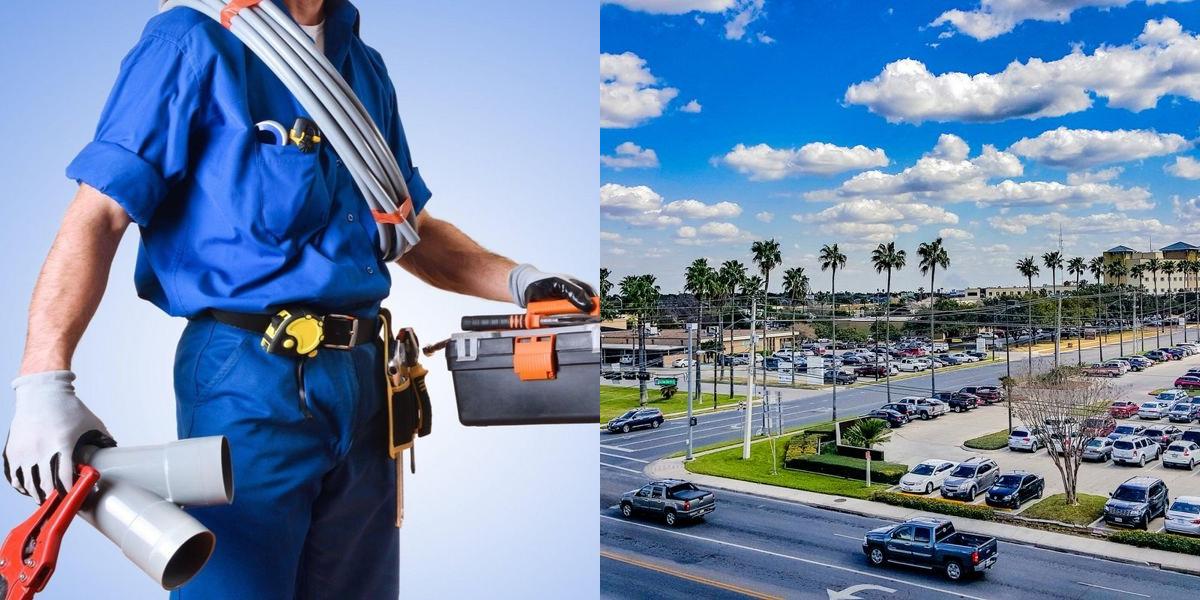How to Become a Plumber in Texas

What is a Plumber?
Plumbers are skilled professionals who install, maintain, and repair various plumbing systems. Their responsibilities include:
- Installing and repairing pipes, fixtures, and appliances that carry water, gas, steam, or other liquids
- Inspecting plumbing systems to identify and diagnose issues
- Reading blueprints and specifications to determine the layout of plumbing systems
- Collaborating with other professionals, such as electricians and construction workers, to ensure proper functioning of plumbing systems
- Adhering to safety standards and regulations to prevent accidents or damage to property
- Providing excellent customer service and effectively communicating with clients
How do I get my Plumber certification?
If you have an interest in plumbing and want to pursue a career in this field, one of the first steps you need to take is to obtain your plumber certification. Becoming a certified plumber not only validates your skills and knowledge but also opens up a wider range of job opportunities and potential for career growth.
In order to get your plumber certification, you need to follow a series of steps and meet specific requirements. Here is a step-by-step guide on how to obtain your plumber certification:
-
Research the requirements: The first step is to research the requirements for plumber certification in your state or region. Each state has its own licensing board or agency that oversees the certification process. Visit their website or contact them directly to gather all the necessary information.
-
Complete the necessary education and training: Most states require aspiring plumbers to complete a certain amount of education and training before they can apply for certification. This usually involves enrolling in a vocational school or community college that offers plumbing programs. These programs typically include both classroom instruction and hands-on training.
-
Gain relevant work experience: Alongside your education and training, it is important to gain practical work experience in the field. Many states require a certain number of hours of practical experience under the supervision of a licensed plumber. This can be achieved through apprenticeship programs or by working as a plumber's helper.
-
Pass the certification exam: Once you have completed the necessary education and gained sufficient work experience, you will need to pass a certification exam. This exam typically covers various aspects of plumbing, including plumbing codes, safety regulations, and practical skills. It is important to study and prepare thoroughly for the exam to increase your chances of success.
-
Apply for certification: After successfully passing the certification exam, you can apply for your plumber certification. The application process may vary depending on the state or region, but it usually involves submitting an application form, paying a fee, and providing proof of education, training, and work experience.
-
Maintain your certification: Once you have obtained your plumber certification, it is important to keep it current by meeting any continuing education or renewal requirements set by your state or licensing board. This may involve completing additional training courses or attending workshops to stay updated on the latest plumbing techniques and regulations.
How do I get a job as a Plumber?
After obtaining your plumber certification, the next step is to find a job in the plumbing industry. Here are some tips on how to get a job as a plumber:
-
Build a strong resume: Your resume is your first opportunity to make a good impression on potential employers. Highlight your plumber certification, relevant education and training, work experience, and any additional certifications or specialized skills you may have. Be sure to include any notable achievements or projects you have worked on.
-
Network within the industry: Networking can be a valuable tool for finding job opportunities in any field, including plumbing. Attend industry events, join professional organizations, and connect with other plumbers and contractors in your area. Networking can lead to job leads, referrals, and valuable connections that can help you advance in your career.
-
Apply for apprenticeships: Apprenticeships are a common way for aspiring plumbers to gain practical experience and learn from experienced professionals. Look for apprenticeship programs offered by plumbing companies, unions, or trade associations in your area. These programs typically combine on-the-job training with classroom instruction and can provide a solid foundation for your plumbing career.
-
Apply for entry-level positions: If you are unable to find an apprenticeship, consider applying for entry-level positions in plumbing companies or construction firms. These positions may not require extensive experience but can offer valuable on-the-job training and an opportunity to learn and grow in the field.
-
Utilize online job boards: Online job boards and job search websites can be a valuable resource for finding plumbing job openings. Create a profile, upload your resume, and regularly check for new job postings in your area. Be sure to tailor your application to each specific job and company you apply to.
-
Prepare for interviews: Once you start getting interview invitations, it is important to prepare thoroughly. Research the company, familiarize yourself with their services and projects, and practice common interview questions. Be prepared to showcase your skills, knowledge, and experience, and demonstrate your enthusiasm for the plumbing industry.
-
Consider starting your own business: If you have the necessary skills, experience, and entrepreneurial spirit, you may consider starting your own plumbing business. This can provide you with greater control over your career and potentially higher earnings. However, starting a business requires careful planning, financial investment, and business management skills, so be sure to do your research and seek guidance if needed.
Career Paths and Opportunities after Becoming a Plumber
Becoming a plumber opens up various career paths and opportunities for professional growth. Here are some potential career paths you can consider after obtaining your plumber certification:
-
Residential plumber: Many plumbers work in the residential sector, specializing in the installation, repair, and maintenance of plumbing systems in homes and apartments. As a residential plumber, you may work for plumbing companies or operate your own business, serving homeowners and property managers.
-
Commercial plumber: Commercial plumbers focus on plumbing systems in commercial and industrial buildings, such as offices, schools, hospitals, and factories. The work may involve larger-scale installations, maintenance, and repairs. Commercial plumbers may work for construction companies, facilities management firms, or operate their own businesses.
-
Service plumber: Service plumbers specialize in providing emergency plumbing services and repairs. They may work for plumbing companies or be self-employed. This career path can offer flexibility and variety, as you may be called to different locations and face various plumbing challenges on a daily basis.
-
Construction plumber: Construction plumbers work on new construction projects, installing plumbing systems in residential, commercial, and industrial buildings. This career path can be particularly rewarding for those who enjoy working with their hands and being part of the construction process from start to finish.
-
Plumbing inspector: Some plumbers choose to become plumbing inspectors, working for government agencies or building departments. In this role, you would be responsible for ensuring that plumbing systems comply with building codes and regulations, conducting inspections, and issuing permits.
-
Pipefitter or steamfitter: With additional training and certifications, plumbers can also pursue careers as pipefitters or steamfitters. These professionals work with high-pressure pipes and systems, often in industrial settings such as power plants or factories.
-
Specialized plumbing: Plumbing offers various specialized fields that you can explore, such as green plumbing, fire suppression systems, medical gas systems, or hydronic heating systems. By gaining additional training and certifications in these areas, you can expand your knowledge and skills and specialize in a specific niche.
These are just a few examples of the career paths and opportunities available to certified plumbers. The plumbing industry continues to grow, and there is a constant demand for skilled professionals in both residential and commercial sectors.
Final Thoughts
Obtaining your plumber certification is an important step towards a rewarding career in the plumbing industry. It not only validates your skills and knowledge but also opens up a wide range of job opportunities and potential for career growth.
By following the steps outlined above, including completing the necessary education and training, gaining practical work experience, passing the certification exam, and applying for certification, you can embark on your journey to becoming a certified plumber.
Once you have obtained your certification, you can start exploring different career paths within the plumbing industry, such as residential or commercial plumbing, service plumbing, construction plumbing, or specialized plumbing. There are also opportunities for advancement, such as becoming a plumbing inspector or pursuing additional certifications in related fields.
Remember to stay updated on the latest plumbing techniques and regulations and continue to invest in your professional development to stay competitive in the industry. With dedication, hard work, and a passion for the trade, you can build a successful and fulfilling career as a plumber.
Are you thinking about a job change or wanting to learn more about different career paths? Feel free to check out these additional articles:

Winlynd Caballero is a member of Dreambound's Sales team. She helps in handling the company's finullcial transactions, generating reports, and school sales. Beyond her responsibilities in the realm of numbers and business, Winlynd finds herself deeply immersed in a world of art and music.





